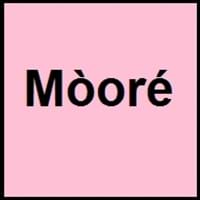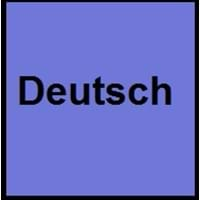Countries
Burkina Faso
Austria, Belgium, Germany, Italy, Liechtenstein, Luxembourg, Switzerland
National Language
Benin, Burkina Faso, Ghana, Ivory coast, Mali, Togo
Germany
Second Language
Not spoken in any of the countries
North Dakota, United States of America
Speaking Continents
Asia
Europe
Minority Language
Not spoken in any of the countries
Czech Republic, Denmark, Former Soviet Union, France, Hungary, Italy, Namibia, Poland, Romania, Slovakia, Slovenia
Regulated By
Not Available
Council for German Orthography
Interesting Facts
- Mossi languages use pitch to distinguish meanings.
- Mossi is the 2nd largest ethnic group in Ivory Coast.
- One of the large group of Indo-Germanic languages is German.
- The second most popular Germanic language spoken today behind English is German language.
Similar To
Dagbani Language
Dutch, Danish, Norwegian, Swedish and English Languages
Derived From
Not Available
Albanian Languages
Alphabets in
Mossi-Alphabets.jpg#200
German-Alphabets.jpg#200
Writing Direction
Not Available
Left-To-Right, Horizontal
Thank You
Laafi bala
Danke
How Are You?
Laafi beme ?
Wie geht es dir?
Good Night
Ne y yungo
gute Nacht
Good Evening
ne y zabre
guten Abend
Good Afternoon
Kia ora
guten Tag
Good Morning
Ne y yibeogo
guten Morgen
Bye
Wend na kon-d nindaare
Tschüs
I Love You
Kei te aroha au ki a koe
Ich liebe dich
Excuse Me
Y gafare
Entschuldigung
Dialect 1
Ouapadoupou
Swiss German
Where They Speak
Burkina Faso
Switzerland
How Many People Speak
Not Available
Dialect 2
Saremde
Swabian German
Where They Speak
Burkina Faso
Germany
How Many People Speak
Not Available
Dialect 3
Taolende
Texas German
Where They Speak
Burkina Faso
Texas
How Many People Speak
Not Available
Second Language Speakers
Not Available
Native Name
Mosse
Deutsch
Alternative Names
Not Available
Deutsch, Tedesco
French Name
moré
allemand
German Name
Mossi-Sprache
Deutsch
Pronunciation
Not Available
[ˈdɔʏtʃ]
Origin
Not available
6th Century AD
Language Family
Niger-Congo Family
Indo-European Family
Subgroup
Western Sudanic
Germanic
Branch
Gur (Voltaic)
Western
Early Forms
No early forms
No early forms
Standard Forms
Mossi
German Standard German, Swiss Standard German and Austrian Standard German
Language Position
Not Available
Signed Forms
Not Available
Signed German
Scope
Individual
Individual
ISO 639 1
No data Available
de
ISO 639 6
Not Available
deus
Glottocode
moss1236
high1287, uppe1397
Linguasphere
No data Available
52-ACB–dl & -dm
Language Type
Living
Living
Language Linguistic Typology
Not Available
Subject-Object-Verb, Subject-Verb-Object
Language Morphological Typology
Not Available
Fusional, Synthetic
All Mossi and German Dialects
Most languages have dialects where each dialect differ from other dialect with respect to grammar and vocabulary. Here you will get to know all Mossi and German dialects. Various dialects of Mossi and German language differ in their pronunciations and words. Dialects of Mossi are spoken in different Mossi Speaking Countries whereas German Dialects are spoken in different German speaking countries. Also the number of people speaking Mossi vs German Dialects varies from few thousands to many millions. Some of the Mossi dialects include: Ouapadoupou, Saremde. German dialects include: Swiss German , Swabian German. Also learn about dialects in South American Languages and North American Languages.
Mossi and German Speaking population
Mossi and German speaking population is one of the factors based on which Mossi and German languages can be compared. The total count of Mossi and German Speaking population in percentage is also given. The percentage of people speaking Mossi language is 0.11 % whereas the percentage of people speaking German language is 1.39 %. When we compare the speaking population of any two languages we get to know which of two languages is more popular. Find more details about how many people speak Mossi and German on Mossi vs German where you will get native speakers, speaking population in percentage and native names.
Mossi and German Language Codes
Mossi and German language codes are used in those applications where using language names are tedious. Mossi and German Language Codes include all the international language codes, glottocodes and linguasphere.





